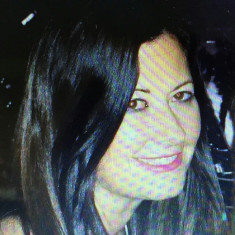
"I am in the practice of medicine and not accounting." The practice of medicine is becoming more similar to the occupation of accounting and business management. With the fading of the traditional Obama Care and the demolition of the past requirements to purchase health insurance more patients are opting out and turning to concierge medicine, walk-in clinics, and sliding scale fees at primary care clinics. With this shift in health care consumerism comes a dangerous playground for practitioners providing care to the uninsured or alternatively insured.
Primary care clinics may commonly see 30–40% of their patients having no access to insurance. The challenges in treating these self-pay patients is in tailoring the management plan to what the patient can afford to pay for that day. Many times I feel that I practice medicine but often I also spend a portion of the visit trying to order the most affordable tests and treatments for the individual. The challenges lie in choosing affordable treatments when the diagnosis is often serious such as cancer and there are no cheaper alternatives to offer. "I am not an accountant."
The diabetic patient requires costly medications and labs on a scheduled basis. Many patients ask me how much the tests cost, which ones they need first, and what will happen if they cannot afford the testing? It is a dangerous playground to dive into when recommending which test is imperative. In the example of a diabetic the ACE Inhibitor, statin, insulin and testing equipment are required to decrease morbidity. To recommend one treatment or partial therapy may mean that the patient will one day end up on dialysis.
Many clinicians in this modern era experience stress when their patients decline a diagnostic mammogram. This test requires prompt initiation and often the cost is prohibitive despite county programs that aid in funding the testing but take time to approve. Every lost minute in the path to treatment of a breast mass is a step closer to potential life-threatening cancer. I remember my ER preceptor in medical school telling me to treat every patient as if they are family and cautioned against treating based on cost. Doing this he warned will allow unfortunate health consequences to happen to the patient and opens the door for litigation.
There are shortcuts, of course, in assisting patients without insurance in the practice that do not put the practitioner nor the patient at risk. Knowing the prices of generic medications versus brand medications and checking stable A1C's in diabetics every six months rather than every three months saves costs and follows guidelines. Ordering cheaper tests such as a BMP rather than a CMP when the blood glucose was normal helps cut costs. Having patients sign up for electronic lab results saves a cost of a visit if the labs are normal and can be viewed from home. Working with non-profit specialists and agencies helps to establish connections for underprivileged patients needing urgent procedures. Using grocery store pharmacies that provide free antibiotics is helpful.
Many urgent care clinics offer menus to their customers that consist of lists or prices for medications, procedures, tests or x-rays. This business model works both for the consumer and practitioner. "May I take your order please?" This is an example of the evolution of a fee for service based system. Again, this is an example of the changing face of medicine dependent on politics and capitalism. Other benchmark models are capitalizing on self-order labs from home and screening clinics offering home assessments by practitioners. Sometimes the labs are ordered but do not substantiate the education about what is considered a normal range for the patient when the results arrive. For example, the ordering of a CRP on an average person without cardiovascular risks is inaccurate. Does this create worry in the patient? Is this where the practice of medicine follows the mantra of, "Do no harm." The new brand of self-order medicine opens the door to 'The Devil's Playground.' Screening tests must be ordered with caution and demands a follow-up visit with a practitioner for abnormal values.
Research on health provision models illustrate that health care consumer's view healthcare as a right and when constructed to pay for services feel that the care they receive becomes inadequate. Socialized medicine models in Canada for example afford Universal Health Care and 'cost menus' do not exist. Although the World Health Organization explains the two year consecutive drop in the life-expectancy of Americans as a cause-and-effect of the opioid crisis, I cannot ponder if the unaffordability of medical care to the majority of the country is more indicative of the decline. What would Florence Nightingale or Hippocrates say if they were alive today? Has the practice of medicine evolved into 'menu' medicine? Can the consumer opt for the appetizer portion of the menu rather than the main meal option and order a few labs rather than the panel? And if the answer is yes, then what are the health outcomes? Stay tuned. As much we practice medicine we live in an era of political and economic turbulence that governs the care we provide and opens doors to becoming a dangerous playground when treating the uninsured.
Connie Lapadat, NP, is a family nurse practitioner in El Cajon, CA. She is a 2018–19 Doximity Author.






